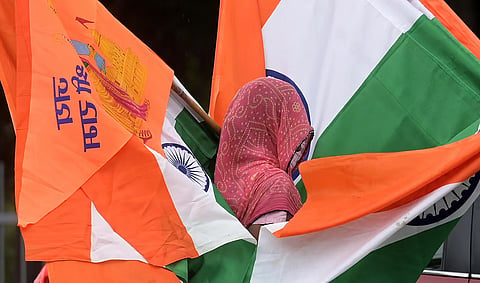

PALAKKAD: A day after sparking controversy by suggesting that the saffron flag should replace the tricolour as India’s national flag, BJP leader and former national council member N Sivarajan has clarified that his statement was a personal opinion and that the final decision lies with the Central government.
Speaking to TNIE, Sivarajan said, “The saffron flag has a rich history spanning centuries. It is not merely the flag of the Rashtriya Swayamsevak Sangh (RSS). It symbolises India’s culture, heritage and spiritual legacy. From Lord Krishna to Swami Vivekananda and Chhatrapati Shivaji Maharaj, the saffron flag has long represented Indian identity.”
He further noted that requests to make saffron the national flag have been submitted to the Prime Minister’s Office multiple times in the past. “It is now up to the Union government to make an appropriate decision. I believe crores of Indians share the same sentiment,” said the BJP councillor from the Palakkad municipality.
On Sunday, the veteran RSS functionary made the remarks during a BJP protest in Palakkad against the LDF and UDF for disrespecting Bharat Mata. Sivarajan’s comments drew widespread criticism from political parties. Amid the controversy, Sivarajan reiterated his demand that political parties should be barred from using flags that closely resemble the national tricolour.
“The Indian National Congress, NCP, Tamil Maanila Congress, and several other parties use flags that look like the national flag. This blurs the distinct identity of our national symbol. They should be asked to adopt clearly distinguishable designs,” he said.
His remarks come against the backdrop of a row in Kerala over the use of the image of Bharat Mata astride a lion holding a saffron flag -- an image widely associated with the RSS -- for official events at the Raj Bhavan. The portrayal has triggered sharp protests and confrontations between BJP and CPM workers on the streets, further deepening the political divide in the state.
As the debate intensifies, political observers view Sivarajan’s remarks as part of a larger narrative pushing for ideological symbolism in national identity.